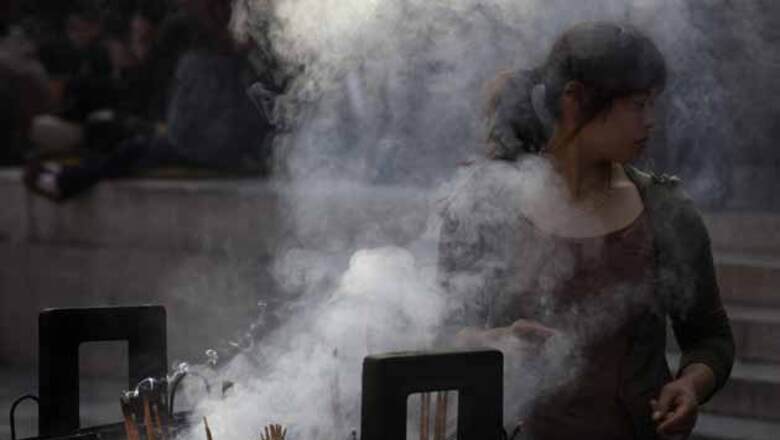
views
New York: Children from homes where incense is regularly burned have a higher risk of developing asthma, according to a Taiwanese study suggesting that a particular genetic variation could also be involved.
Incense has been used for millennia in many cultures' religious and spiritual ceremonies. In parts of Asia, people commonly burn incense in their homes -- a practice that is becoming more popular in Western countries as well.
Researchers led by Yungling Leo Lee of National Taiwan University in Taipei found that of nearly 3,800 middle-school children, 3 percent had current asthma and more than five percent had wheezing during exercise.
Children whose parents burned incense were 36 percent more likely to have current asthma and 64 percent more likely to wheeze when they exercised, said findings published in the European Respiratory Journal.
Of the children, 48 percent carried no copies of a gene variant known as GSTT1, which helps regulate a family of enzymes that protect body cells from oxidative damage, including that caused by cigarette smoke or other toxic chemicals.
People without this variant have been found to have higher risks of allergies and asthma.
"Incense burning is a risk factor for asthma and wheezing, especially in GSTT1 genetically susceptible children," wrote Lee and his colleagues.
Children in the Taiwan study with no copy of the gene were 43 percent more likely to currently have asthma than peers who carried at least one copy.
Of those children, those with daily exposure to incense in their homes were 78 percent more likely than those with no exposure to currently have asthma -- a pattern that was not true of children with the gene variant.
Incense is usually derived from fragrant plant materials, like tree bark, resins, roots, flowers and essential oils. Previous research has found that burning these materials can produce harmful substances, including benzene and polyaromatic hydrocarbons.
A 2008 study of more than 61,000 Chinese adults followed for up to 12 years found a link between heavy incense use and various respiratory cancers, including oral, nasal and lung cancers.
While neither that study nor the current one proves that incense is the reason for the greater disease risks, the more recent one raises the possibility that limited incense use at home could help curb asthma risk for some children, Lee told Reuters Health in an e-mail.
Some studies in Asian countries have found connections between incense burning and respiratory symptoms in children, but others -- including one of schoolchildren in Hong Kong -- have not, Lee and his team said.
It is also not clear whether the most recent findings can be generalized to other countries, he added.




















Comments
0 comment